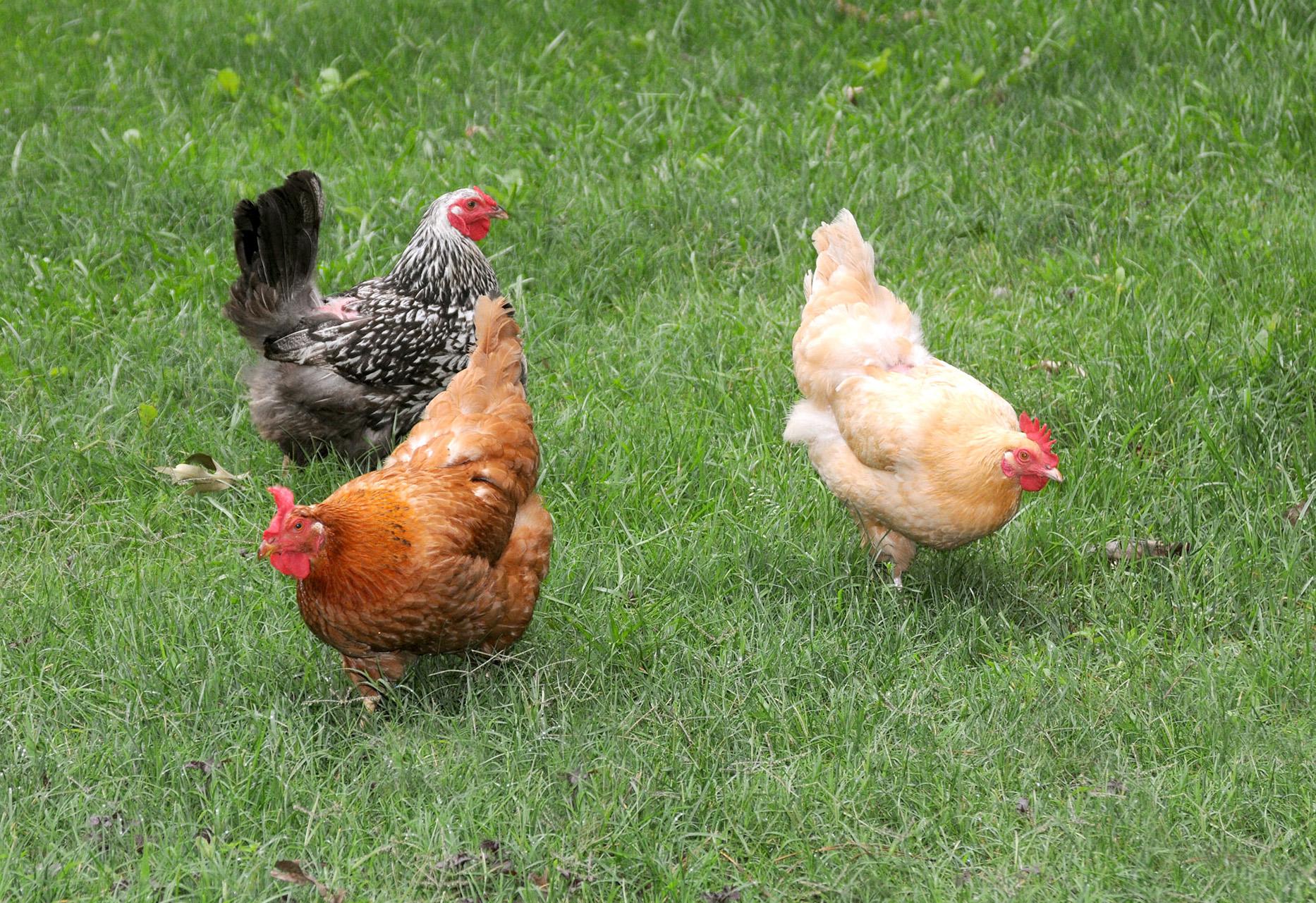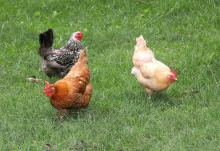Information Possibly Outdated
The information presented on this page was originally released on March 14, 2013. It may not be outdated, but please search our site for more current information. If you plan to quote or reference this information in a publication, please check with the Extension specialist or author before proceeding.
Raising backyard birds requires planning, time
MISSISSIPPI STATE – In response to the increasing popularity of raising chickens for eggs and meat, Mississippi State University Extension experts are offering tips for people interested in starting their own flock of backyard birds.
Tom Tabler, MSU Extension Service poultry specialist, said chickens are a great project, as long as everyone involved understands what they are signing on for.
“I like to talk about poultry as a livestock, and if you’re going to raise livestock, it’s a good starter project,” he said. “You have lower start-up costs and easier care. It’s not a cake-walk, but kids can learn responsibility and how to care for animals properly.”
In addition to learning about costs and time involved, Tabler said people should research chicken breeds, because different breeds are suited to different purposes.
For example, someone interested in egg production would not need any roosters, and might consider Leghorns, which are productive layers. If meat production is the goal, other breeds, such as Cornish, are better suited for that purpose. Cochins and some Bantam breeds are considered more docile and thus better for small children interested in having a pet. Ameraucana hens lay colorful eggs but do not lay abundantly.
Jessica Wells, Extension instructor at MSU’s Department of Poultry Science, said Mississippians interested in buying eggs to hatch or chicks to raise can find them locally, but they need to consider disease issues before bringing the birds home.
“I recommend contacting the poultry section of the Board of Animal Health,” Wells said. “They keep a list of all of the flocks that are Mississippi Poultry Improvement Plan-certified through their office, which means the flocks have been tested for diseases.”
Wells said backyard bird enthusiasts who do not purchase from state-certified growers should buy from a reputable hatchery that is National Poultry Improvement Plan certified.
“This route may be more expensive than buying from your neighbor or at the flea market, but it will pay off in the long run by yielding a happy, healthy flock,” she said.
Chickens are vulnerable to predators, such as wild animals and family pets, and a pen is needed to keep them safe. A pen is the largest investment backyard birds require, but they don't have to be expensive, just secure.
“Cats, dogs, raccoons, coyotes, possums, foxes, hawks and other flying predators will see your chickens as an easy and free meal if you don’t have a proper structure that provides protection from every angle,” Wells said. “Remember that animals can come in from the sides, top or bottom of the pen, and predators come in all sizes.”
Wells said growers can find a variety of poultry pen plans online, but ready-made options exist too.
“If you don’t want to construct your own pen, a simple chain-link dog pen can be used, as long as the top is secured. This can be something as simple as a tarp,” she said. “Nest boxes should be built out of a solid material on the pen’s back side.”
Keeping the pens clean will help keep chickens healthy.
“Regular maintenance keeps fecal material low, fly populations down, and feed from being spilled and spoiling, which in turn cuts down on rodents,” Wells said.
Chickens may snack on insects that wander through the yard, but they must have a nutritious feed to keep up their weight and regularly produce eggs.
“I don’t recommend trying to mix your own feed,” Wells said. “Pre-mixed feeds have all the ingredients the birds need, at the right levels. People think they can feed food scraps or chicken scratch and save money on feed costs, but if the birds fill up on scraps and scratch before being fed normal chicken feed, they don’t benefit from the feed’s nutrition.”
The bottom line is that raising chickens is work, but if done correctly from the beginning, it can be fun and fulfilling.
“If you don’t provide proper care and management, neither you nor your birds will be happy,” Tabler said.
For more information, see Extension publication, P2768, “Managing the Backyard Flock”.






